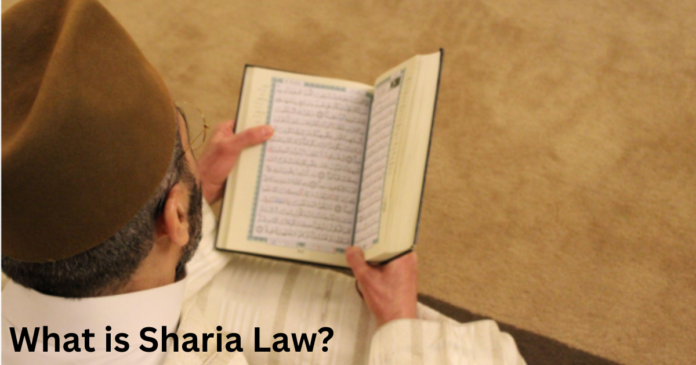Sharia Law
Recently the Taliban has taken over Afghanistan. The people of the nation are scared as to what might follow. They still remember the horrors the Taliban had unleashed 20 years ago when it was in power in the country. The world had its eyes fixed on the way of administration that the Taliban was going to adopt.
The Taliban announced that it would follow the Sharia law like it previously did. This has put the freedom and life of all the women of the country. The people of Afghanistan are trying to flee the nation in any way possible to escape persecution. In the news, women are seen throwing their infants over fenced walls to the US and UK military, so at least they can be safe.
This is how scared people are, they are trusting that their children can be safe in the hands of a stranger. Some people fleeing the nation have been said to have destroyed the pictures of their wives and daughters. This was not the situation a few years ago, Afghanistan was almost at par with the Western nations in gender equality.
Sharia Law
There is no clear definition of what sharia is, different people put and apply sharia in different ways. But if the broad concept is put together, it can be said that sharia is the spiritual and legal system of Islam. It is said to be both divine and philosophical. In Arabic Sharia translates to “the clear well-trodden path to water”.
The human interpretation of sharia is called the Fiqh which means “understanding”. The Sharia and fiqh are often used interchangeably but they do not have the same meaning. While sharia is considered divine, permanent, and infallible. The fiqh is human, it is a set of rules put together by Muslim scholars over the centuries.
There are three sources of sharia, the Quran which is the holy book of Islam. The Sunnah is the deed of Prophet Mohammad. The Hadith, the sayings of Prophet Mohammad. There is no set statute as to exactly are the rules by which God wants the Muslims to live.
The 5 Schools of Thought
Sharia is a vast collection of different and often conflicting interpretations. These interpretations led to the emergence of five distinct schools of thought. Maliki, Hanafi, Hanbali, and Shafi’i, four belong to Sunni Islam. The fifth is the Shia version of sharia, i.e the Ja’fari.
The Hanbali school of Sharia is practiced in Saudi Arabia and Qatar. It also has significant followers in Syria, UAE, Oman, Yemen, and Bahrain. It is the smallest and strictest of all the schools of thought. Its primary source is the Quran. The Maliki school of Sharia is practiced in the West of the African continent. It is based on an independent understanding of the Quran.
The Shafi’i school of sharia relies on consensus over the understanding of the Quran. It is followed in east Africa and SouthEast Asia. the Hanafi school of Sharia is the earliest and the most flexible school of sharia.
Read this also : Goa’s 18th June Road
It depends on both agreement and individual reasoning. Hanafi has the largest number of followers in the Muslim world.
Then we have the Ja’fari school of sharia, followed only by the Shia. It is a part of Iran’s constitution. It is practiced in Iran and by small pockets of Shia Muslims around the world.
These are the 5 schools of Sharia, they are not different in their fundamentals as they have the same source, i.e Quran. But the difference lies in ways they are practiced, like how they resolve legal matters, deliver punishments, and settle marital disputes.
How did Sharia come in Practice
During the European colonial period, the crown and the church came together. It was done to serve the interest of the crown. Similar things happened in Muslim countries. While later the church and the governance separated, in the European nations. In many Islamic countries, it did not happen.
In many African nations when the European colonialists left, the countries were left with the choice of whether they should adopt the previously Islamic values or adopt the system left by colonial rule. They chose the sharia. This is where the problem began. Many countries which were not colonists also adopted sharia. Like in 1932 Saudi Arabia became a theocratic monarchy.
Conclusion
In 1996 when the Taliban took Afghanistan it implemented sharia to serve its purpose. The law of sharia is not the problem, the problem lies in the practices adopted by the countries.
The law which the Taliban intends to adopt allows draconian practices. It includes polygamy, triple talaq. It also discriminates against women’s rights. It imposes many restrictions on what women can do and cannot do. There are many restrictions like women cannot go outside of their houses without a male member.
They cannot step outside the house without a veil, if adultery is found they are publicly punished. While on the other hand men have the freedom to do whatever they choose to. They uphold ignorant and unjust practices just to serve their purposes.

Your point of view caught my eye and was very interesting. Thanks. I have a question for you.
Your point of view caught my eye and was very interesting. Thanks. I have a question for you.
Thank you for your sharing. I am worried that I lack creative ideas. It is your article that makes me full of hope. Thank you. But, I have a question, can you help me?
Your article helped me a lot, is there any more related content? Thanks!
Thank You